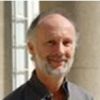
Juan de Dios Ortuzar
- Course: MSc (Eng) Transport Planning and Engineering
- Year of graduation: 1974
- Nationality: Chilean
- Job title: Professor of Transport Engineering
- Company: Pontificia Universidad Católica de Chile
As Professor of Transport Engineering at Pontificia Universidad Católica de Chile I have four types of duties: (i) to lecture (two courses each semester), which takes about 30% of my time, including class preparation and student attention; (ii) research, I have been blessed with very good MSc and PhD students from Chile and abroad who keep me really busy (I guess more than 40% of my time is devoted to supervising students, writing papers, reviewing theses); (iii) external services, such as acting as an advisor or consultant to government and private institutions in both Chile and abroad. In the last five years, my colleagues and I have been involved in project consultations in Australia, Brazil, Chile, Colombia, Mexico, Norway and Spain. We are currently starting another project in Germany. This is fun as it is high level consulting and advising and takes up most of the remainder of my time; (iv) administrative tasks, such as belonging to internal commissions or being, every so often, Director of the Department; this is a required duty, not terribly interesting but needed, and luckily it only takes up about 5% of my time.
"Being an ITS graduate has helped my career greatly, particularly early on." In 1986 I set a record for the youngest Full Professor at our School of Engineering (which is the top one in the country). We receive the best students in Chile considering all universities and careers, and this is a great responsibility.
I came to the UK with a British Council scholarship for my MSc, and ITS Leeds was obviously the top place to study. Alan Wilson, Coleman O'Flaherty and Ken Gwilliam had recently set up ITS with a substantial research grant from the Science Research Council. I met Huw Williams then (he later became Professor at the Cardiff University School of City and Regional Planning), who is probably the only genius I have ever come across - and I know two Nobel laureates in Economics. Huw supervised my MSc thesis, a paper based on which was published in 1976 in Transportation Research - quite a feat. I intended to do my PhD at Berkeley, but Huw obtained a grant to study Discrete Choice Models - which would become very important in the 1980's - and convinced me to return to do my PhD at ITS whilst working as a Research Officer. Our project was highly successful and served me to meet, very early on, most of those who would later be important in this field - in fact, in 1980 we organised the first International Choice Modelling Conference (with Howard Kirby), and it was attended by literally everybody (Moshe Ben Akiva, Carlos Daganzo, Andrew Daly, David Hensher, Yossi Sheffi, etc.), all names that would eventually become famous in the developed world.
"One funny part was that just before the conference Hugh Gunn and I decided to provide a short course on DCM for the benefit of British attendants. By that time David Hensher and Les Johnson had written a text on Discrete Choice Models ... of course, the two first "students" and in the first row, were Hensher and Johnson."
I would say that the MSc at Leeds was a very good experience, but I am certain that it has changed markedly with many more options available. During my time there were only two; the MSC on Transport Planning and Engineering and the MSc in Transport Economics. But I would probably say the PhD is what marked me the most - in particular the experience of working really closely with such interesting people as Huw Williams and Dirck Van Vliet who was my formal supervisor.

